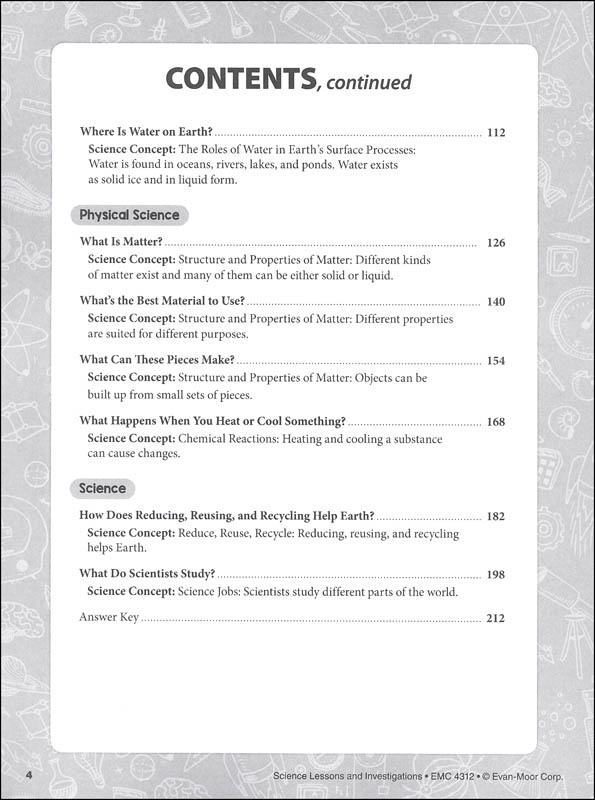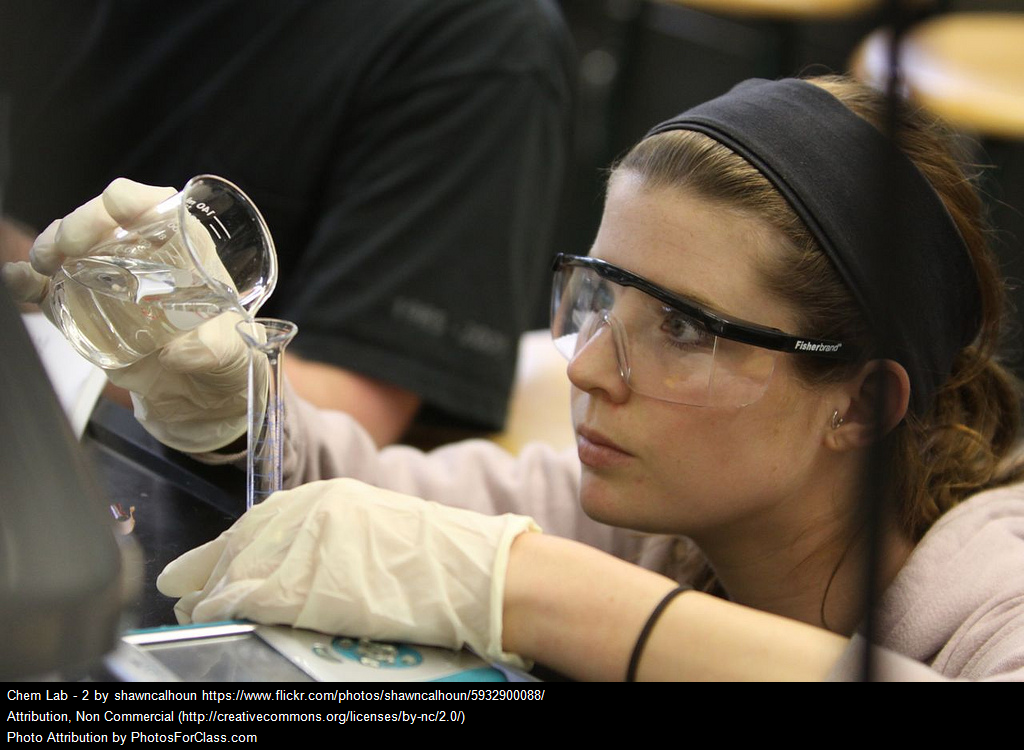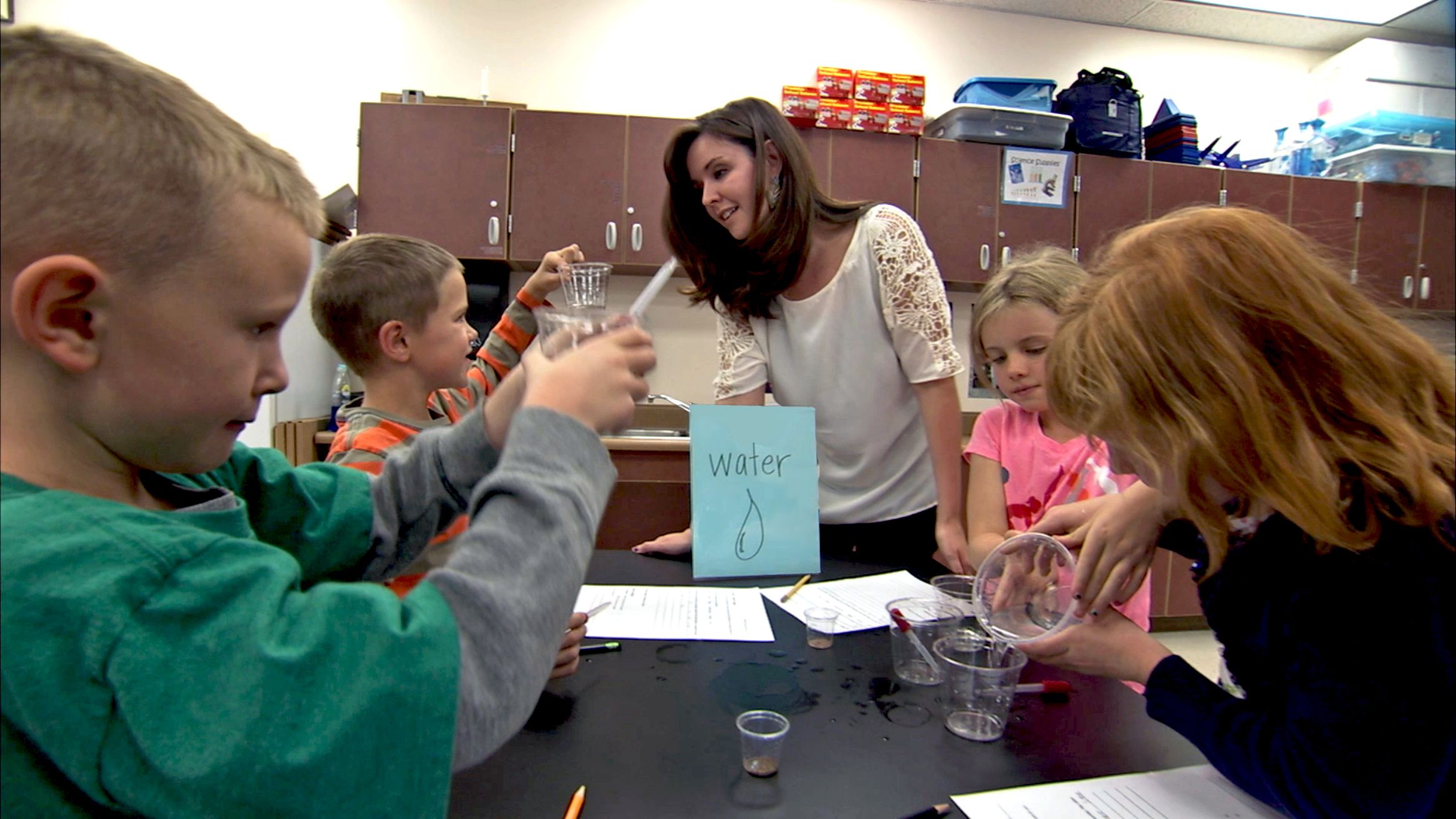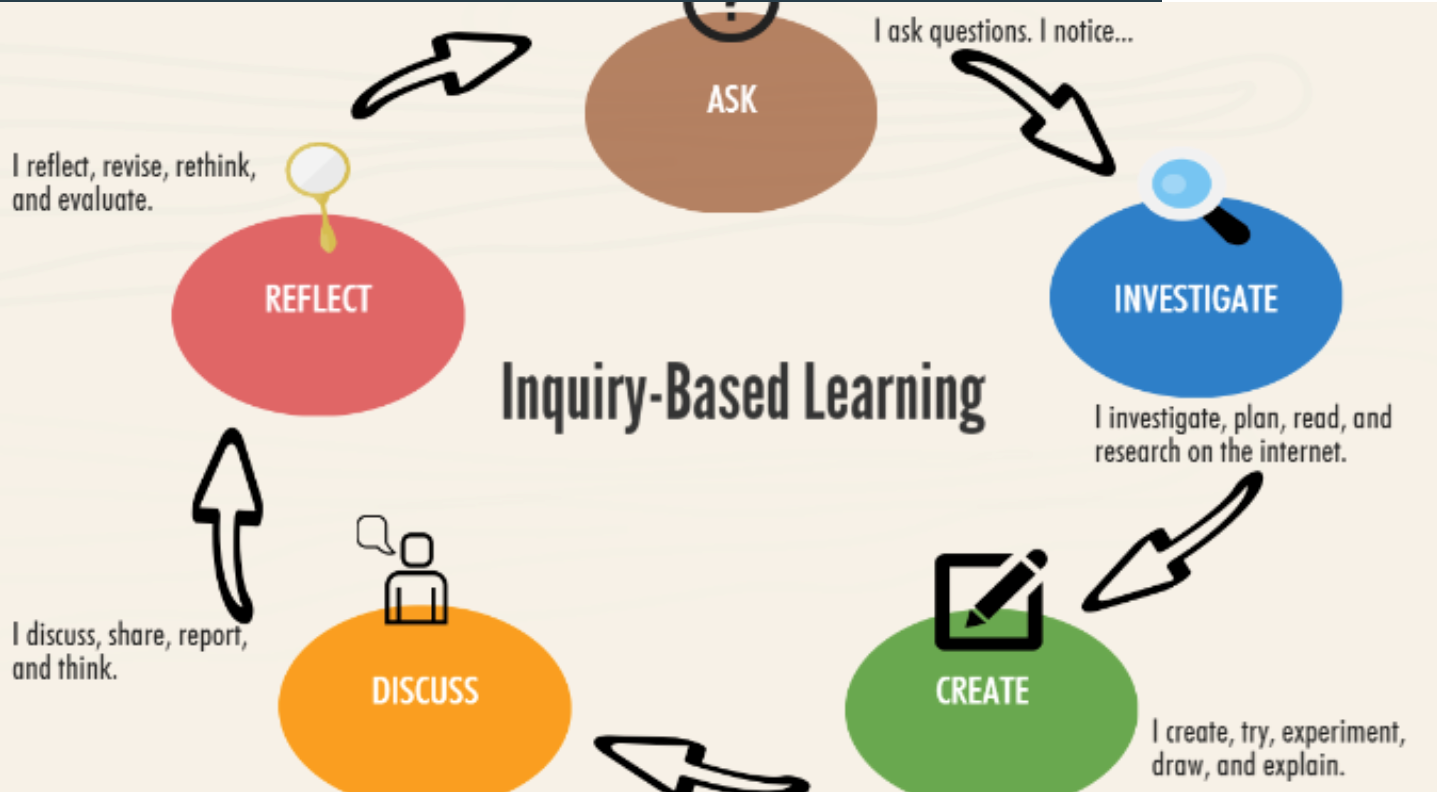44 inquiry based science lessons
Inquiry Based Science Lessons Lesson Plans & Worksheets Focus on inquiry-based learning in your science class with a series of activities designed for middle schoolers. A helpful packet samples four different texts, which include activities about predator-prey relationships, Earth's axis and... + Lesson Planet: Curated OER Acids and Bases—Microscale Chemistry For Teachers 6th - 8th Standards Science Inquiry Lesson Plan Teaching Resources | TpT This is a lesson plan and handout for a science inquiry on solids, liquids, gases. Students will create a root beer float and see the three states of matter. The lesson plan has a daily target, steps, materials you will need, extensions, videos, and more! Marzano elements are embedded but can be removed if needed.
What is Inquiry-Based Science? - Smithsonian Science Education Center Inquiry-based science adopts an investigative approach to teaching and learning where students are provided with opportunities to investigate a problem, search for possible solutions, make observations, ask questions, test out ideas, and think creatively and use their intuition.

Inquiry based science lessons
14 Effective Teaching Strategies For Inquiry-Based Learning Inquiry-based learning is an approach to learning guided by students through questions, research, and/or curiosity. An inquiry-based learning strategy is simply a way to facilitate inquiry during the learning process. It might be useful to think of ways to suppress inquiry to emphasize the strategies that might be used to promote it. Inquiry Based Science Lesson Plans & Worksheets Reviewed by Teachers Learning Ocean Science through Ocean Exploration. For Teachers 6th - 12th Standards. The 10 inquiry-based lessons in this collection, developed for NOAA Voyages of Discovery and the Ocean Explorer WebSite, give young oceanographers experience using scientific data and modeling scientific work and thinking. 4 Powerful Inquiry Based Teaching Strategies Inquiry-based learning is about triggering curiosity and fostering critical thinking skills. It is about finding those things that ignite a child's passion and excitement, and drives them to want to learn more. By embracing and encouraging inquiry based learning we build a love of learning in students that will last a lifetime.
Inquiry based science lessons. 5 Easy and Engaging Inquiry Activities for Kindergarten, Year 1 and ... Why you need to start using inquiry-based learning science activities. Inquiry learning has been a real buzzword of late - and that is for a reason! Schools that use an inquiry based approach to learning report higher academic success, and higher engagement and interpersonal skills in their students. Inquiry learning teaches grit and ... Inq. Science | Kristen's Kindergarten 5 Senses Here are a few other Inquiry Based Science Lessons I have created this summer (2008). Please feel free to use the ideas but contact me first if you would like to reproduce or change them. fuzzlady77@hotmail.com 5senses5e 5sensesbook 5sensesrubric ——————————————————————————————- Monarch Butterflies Free Interactive Science Lessons and Activities Free Interactive Science Lessons Science4Us aligns to national and individual state standards for kindergarten through second grade science. Covering four “books” of science — Physical Science , Life Science , Earth/Space Science and Inquiry — the comprehensive Science4Us curriculum includes 28 modules of material. What is Inquiry-Based Learning? - Study.com The definition of inquiry-based learning (IBL) is that it starts from a place of questioning. Students may spontaneously ask questions or be prompted to ask questions about a particular topic ...
Lesson Plans | Inquiry Based Learning Institute This is an inquiry-based learning lesson in which students learn about plants and what they need to survive. Students will be engaged in hands-on activities that involve taking care of plants to answer a comparative question regarding what helps plants grow the best. They will analyze their findings and present to the class. Inquiry-based learning - Wikipedia Inquiry-based learning (also spelled as enquiry-based learning in British English) is a form of active learning that starts by posing questions, problems or scenarios. It contrasts with traditional education , which generally relies on the teacher presenting facts and their own knowledge about the subject. What Is Inquiry-Based Science Teaching and Learning? this call for inquiry-based learning is based on the recognition that science is essentially a question-driven, open-ended process of constructing coherent conceptual frameworks with predictive capabilities and that students must have personal experience with scientific inquiry and engage in its practices, in order to be enculturated in these … Inquiry-Based Learning: Definition, Examples & Model Nov 23, 2021 · Inquiry-based learning happens through discovery and is achieved while seeking to answer a question. ... you'll also get unlimited access to over 84,000 lessons in math, English, science, history ...
10 Inquiry-Based Learning Science Activities for Young Learners Inquiry-based learning provides the perfect platform for the exploration of science and nature. In fact, many of the best inquiry-based learning science activities are the simplest, stemming from the experiences we have with the things around us . The 10 activities provided below use the familiar processes or objects we encounter every day. Science - Inquiry Based Learning Resources - Google Sites Inquiry-based learning uses a central question to frame a curriculum unit or module. Students answer this central question for themselves, discovering and ... Science4Inquiry.com || Lesson Plans Lesson Plans Earth Science An Investigative Look at Florida's Sinkholes Atmospheric Layers Carbon and Climate Deforestation Edible Plate Tectonics Expanding the Universe Fluid Streams Affecting Weather It's Not all Visible Journey Through the Spheres of the Earth Layers and Laws Layers of the Earth Let's Get Moving Phases of the Moon Scientific Inquiry Activities for Elementary Students - Study.com This lesson provides several activities to help elementary school kids learn this process. Scientific Inquiry Scientific inquiry has several steps that are required in investigating a question. The...
WISE: Web-based Inquiry Science Environment Powered by TELS Research and WISE Open Source Technology.Help us translate WISE!. This material is based upon work supported by the National Science Foundation. Any opinions, findings, and conclusions or recommendations expressed in this material are those of the author(s) and do not necessarily reflect the views of the National Science Foundation.
inquiry-based learning – Turning kids into classroom ... - STEM We promote inquiry-based learning in science and technology lessons, encouraging children to go beyond memorizing facts and become active learners.
Inquiry-Based Learning in the Science Classroom Inquiry-based learning uses a central question to frame a curriculum unit or module. Students answer this central question for themselves, discovering and learning through a series of guided discussions, experiments, and hands-on activities over several class periods. ~no byline edutopia.org Key Takeaways: 1
Guided Inquiry - Just Science Now The following standards-based lesson plans—from the Beacon Learning Center—provide practical classroom applications of guided inquiry.
Science Lesson Plans and Curriculum Resources Curriculum Resources for Inquiry-Based Learning. These projects were developed by graduate and undergraduate students at Cornell University, ...
INQUIRY-BASED LEARNING - YouthLearn INQUIRY-BASED LEARNING: AN APPROACH TO EDUCATING AND INSPIRING KIDS Inquiry-based learning is not a new technique in fact, it goes back to education philosopher John Dewey but it does stand in contrast to the more structured, curriculum-centered frame - work of today s schools. Asking questions is at the heart of inquiry-based learning.
Inquiry in Action - Free Elementary Science Lessons and Activities ... Inquiry in Action is a FREE teacher resource of fully-developed lesson plans in physical science for grades K-5. All Inquiry in Action Lessons: Are aligned to the Next Generation Science Standards (NGSS) for "Weather and Climate" (Kindergarten) and for "Structure and Properties of Matter" (2nd and 5th). Are based on phenomena students ...
Answers That Are a Little Out of Reach | Edutopia Having kids engage in inquiry-based science lessons really provides them with a way to explore on their own. It removes the teacher as somebody who is providing them with information that they need to memorize. And instead, what the kids are really doing is they're experiencing, they're discovering as they go. And that's what real scientists do.
Inquiry Science | Science in Pre-K Science in Pre-K applies inquiry science as an age-appropriate approach to learning science that allows young children to make discoveries and ask questions with the guidance of a teacher. Children learn by doing, observing and reflecting. Inquiry science learning happens throughout the school year, not in just one lesson plan.
PDF Lesson Plan: Getting Into Inquiry-based Learning With Inclined Planes Structured Inquiry. 2 Guided Inquiry. 4 Open Inquiry. 5 STSE Extensions: Relating Science and Technology to Society and the Environment 6. Appendix7. Curriculum Connections . The activities in this resource complement the . Ontario Science and Technology Curriculum (Understanding Structures and Mechanisms: Grade 2, Movement, pg. 61). Ontario ...
PDF Scaffolding the Development of an Inquiry-Based (Science) Classroom Abstract: Our experience with Learning by Design, an inquiry-based and design-based approach to middle-school science has uncovered several problems teachers have introducing students to an inquiry approach. Teachers find it hard to help students learn content at the same time they are learning skills and processes required for inquiry and design.
The 5 E’s of Inquiry-Based Learning - AASL Aug 30, 2019 · Home › Blog Topics › Advocacy/Leadership › The 5 E’s of Inquiry-Based Learning. The 5 E’s of Inquiry-Based Learning By Sam Northern, Ed.D. on 08/30/2019 • ( 5). The U.S. Bureau of Labor Statistics projects an 18.7 percent growth in employment in science and engineering occupations between 2010 and 2020, compared to 14.3 percent for all occupations (NSF 2019).
Engaging Young Learners Through Inquiry-Based Learning Sep 21, 2015 · A culture of inquiry: According to Inquiry-based Learning: On Transforming Wonder into Knowledge, establishing a culture in which students are encouraged to express their thoughts and challenge one another’s ideas is an important first step in the inquiry process. When students feel comfortable and encouraged to share what they are thinking ...
Inquiry-based Science Activities in 6-12: Meeting the NGSS The bulk of the book is made up of ten model lessons ranging from an interdisciplinary lesson on topographic maps and plate tectonics for middle schoolers to a multi-day exploration of "Transcription and Translation from a Cellular Perspective" geared for a high school biology class. Of themselves, the lessons are well-structured and engaging.
8 Exceptional Inquiry-Based Learning Activities Students Will Love That's exactly what these 8 inquiry-based learning activities will provide. Each one provides a scenario with real-world flavour, a set of discussion questions, and resources for further exploration and knowledge expansion. Try them out with your learners and watch the inquiry-based magic happen. 1. Our Plastic Oceans
Inquiry Based Science Lessons Teaching Resources | TpT Guided Inquiry on Geology (Phenomenon-Based Science Lesson) by Ambitious STEM Teaching $10.00 $6.00 Google Drive™ folder Guided inquiry Engaging Science lesson on phases of the Moon and eclipse. Made with student-centered scientific discourse at the core.
The Five Features of Science Inquiry: How do you know? The 5 features of science inquiry (emphasis is mine) Learner Engages in Scientifically Oriented Questions Learner Gives Priority to Evidence in Responding to Questions Learner Formulates Explanations from Evidence Learner Connects Explanations to Scientific Knowledge Learner Communicates and Justifies Explanations
Inquiry-Based Science Education (IBSE) - IAP this learning will involve the development and use of skills of observation, raising investigable questions, planning and conducting investigations, reviewing evidence in the light of what is already known, drawing conclusions and communicating and discussing results .it is also recognised that deep learning depends on students' full engagement …














0 Response to "44 inquiry based science lessons"
Post a Comment